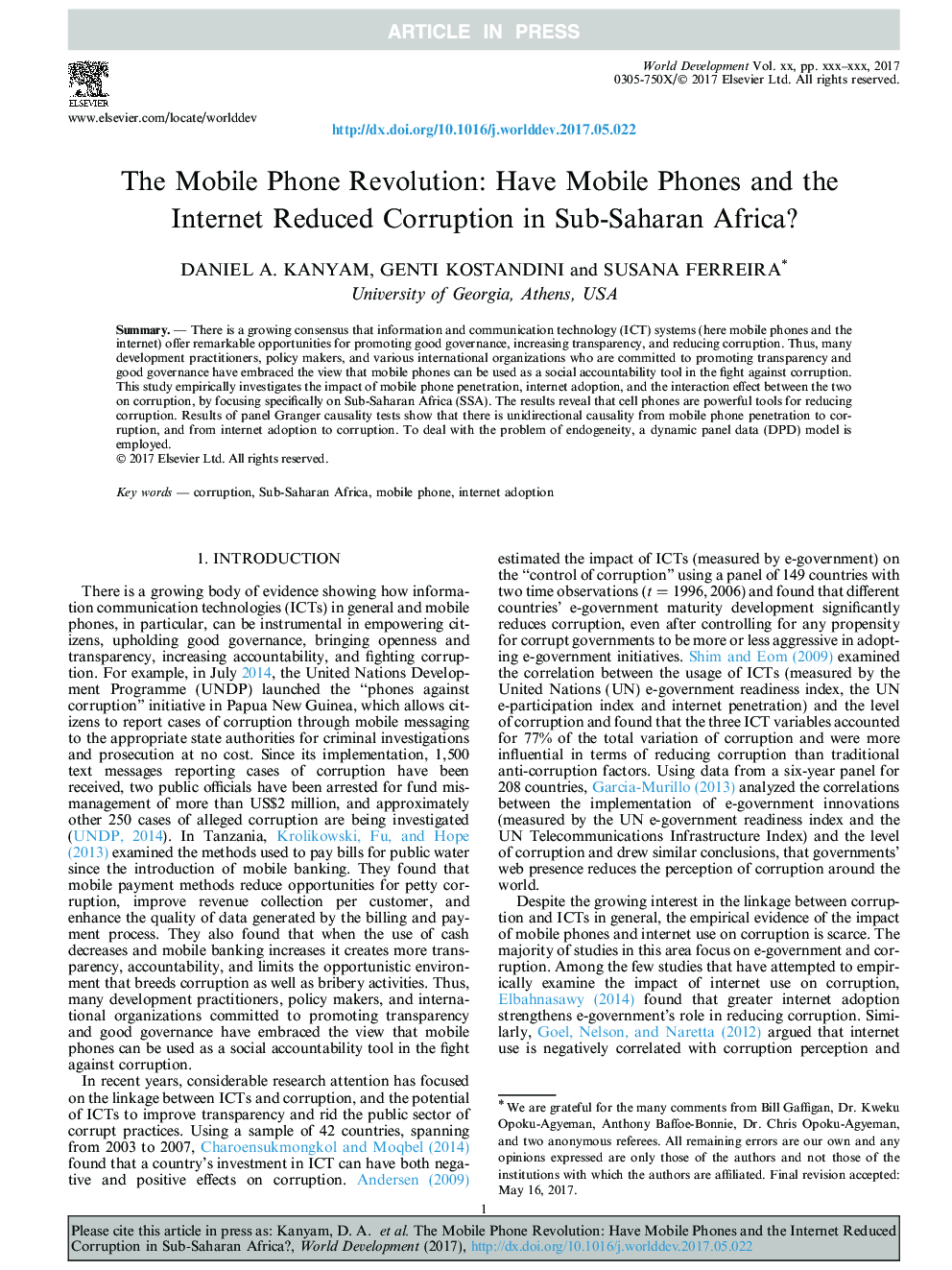| Article ID | Journal | Published Year | Pages | File Type |
|---|---|---|---|---|
| 5105104 | World Development | 2017 | 14 Pages |
Abstract
There is a growing consensus that information and communication technology (ICT) systems (here mobile phones and the internet) offer remarkable opportunities for promoting good governance, increasing transparency, and reducing corruption. Thus, many development practitioners, policy makers, and various international organizations who are committed to promoting transparency and good governance have embraced the view that mobile phones can be used as a social accountability tool in the fight against corruption. This study empirically investigates the impact of mobile phone penetration, internet adoption, and the interaction effect between the two on corruption, by focusing specifically on Sub-Saharan Africa (SSA). The results reveal that cell phones are powerful tools for reducing corruption. Results of panel Granger causality tests show that there is unidirectional causality from mobile phone penetration to corruption, and from internet adoption to corruption. To deal with the problem of endogeneity, a dynamic panel data (DPD) model is employed.
Related Topics
Social Sciences and Humanities
Economics, Econometrics and Finance
Economics and Econometrics
Authors
Daniel A. Kanyam, Genti Kostandini, Susana Ferreira,
